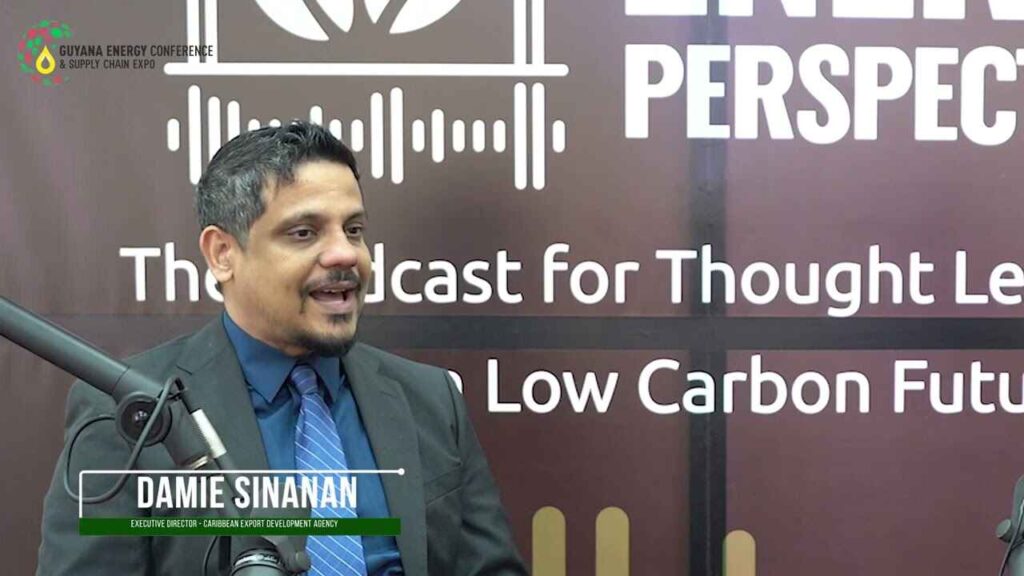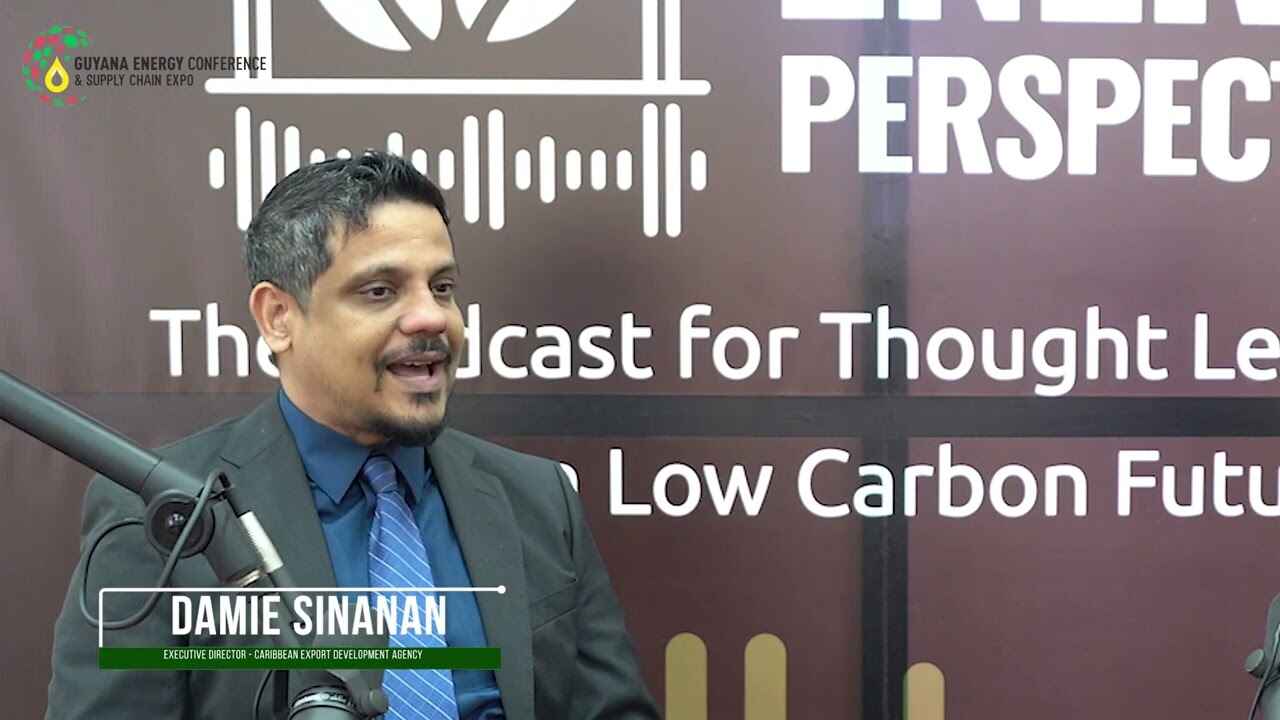By Kiana Wilburg
CEO, Guyana Energy Conference and Supply Chain Expo
Guyana, now a regional powerhouse with its considerable oil and gas resources, should share its well-tested models for economic diversification with its sister nations in the Caribbean Community (CARICOM). This is according to Executive Director of the Caribbean Export Development Agency (CEDA), Dr Damie Sinanan.
During his appearance on the Energy Perspectives podcast, powered by the Guyana Energy Conference and Supply Chain Expo, Dr. Sinanan noted that many CARICOM territories are indeed grappling with challenges regarding food and energy security. He noted, however, that Guyana can be instrumental in leading the way to addressing many of these economic roadblocks, especially when one considers that the country has prudently utilized its significant oil wealth to fuel transformative growth in its traditional industries.

“At the end of the day, we have to be one Caribbean. We have to approach these challenges together. We can’t approach it as 15 different member states because we’re too small. We’re not going to have any impact. We don’t have scale,” Sinanan said.
He believes that if the region unites in sharing technologies and know-how, a more sustainable future could be attained.
The Executive Director said, “Guyana is doing wonderful things. The oil and gas industry is really taking off. But you can see the investment in diversification. You can see the investment in green technologies. You can see the investment in digitalization, internet penetration.”
Sinanan said it would benefit CARICOM greatly if these models could be shared, adding that he believes it is the intention of Guyana’s Head of State, Dr. Irfaan Ali to help as much as possible.
“I’m very excited to see his vision unfold and work together with the other leaders to really bring about a unified Caribbean region,” said the CEDA official.
President Ali has indeed shared his intention for Guyana’s oil wealth to be leveraged for the betterment of not only its citizens but the wider region. The Head of State has consistently referred to the critical challenges facing the region and the investment gaps that need to be filled.
He noted as an example that an annual average investment of US$373 billion is required just to improve water and sanitation. Addressing this financing gap, he said, requires a strategic deployment of private capital.
In building the needed infrastructure for roads, airports and public transportation, President Ali has said it would necessitate an annual investment of US$976 billion. Of this amount, the President said the region would have to allocate US$310 billion to the construction of new roads.
The investment gap in telecommunication is also substantial. Boosting residential connectivity with fixed broadband and 4G mobile internet technology requires an average annual investment of US$293 billion or 0.4% of GDP, through to 2030.
Overall, Ali said CARICOM members must leverage their collective strengths to not only filly these investment gaps but also create sustainable pathways for development that benefit the entire Caribbean region.

